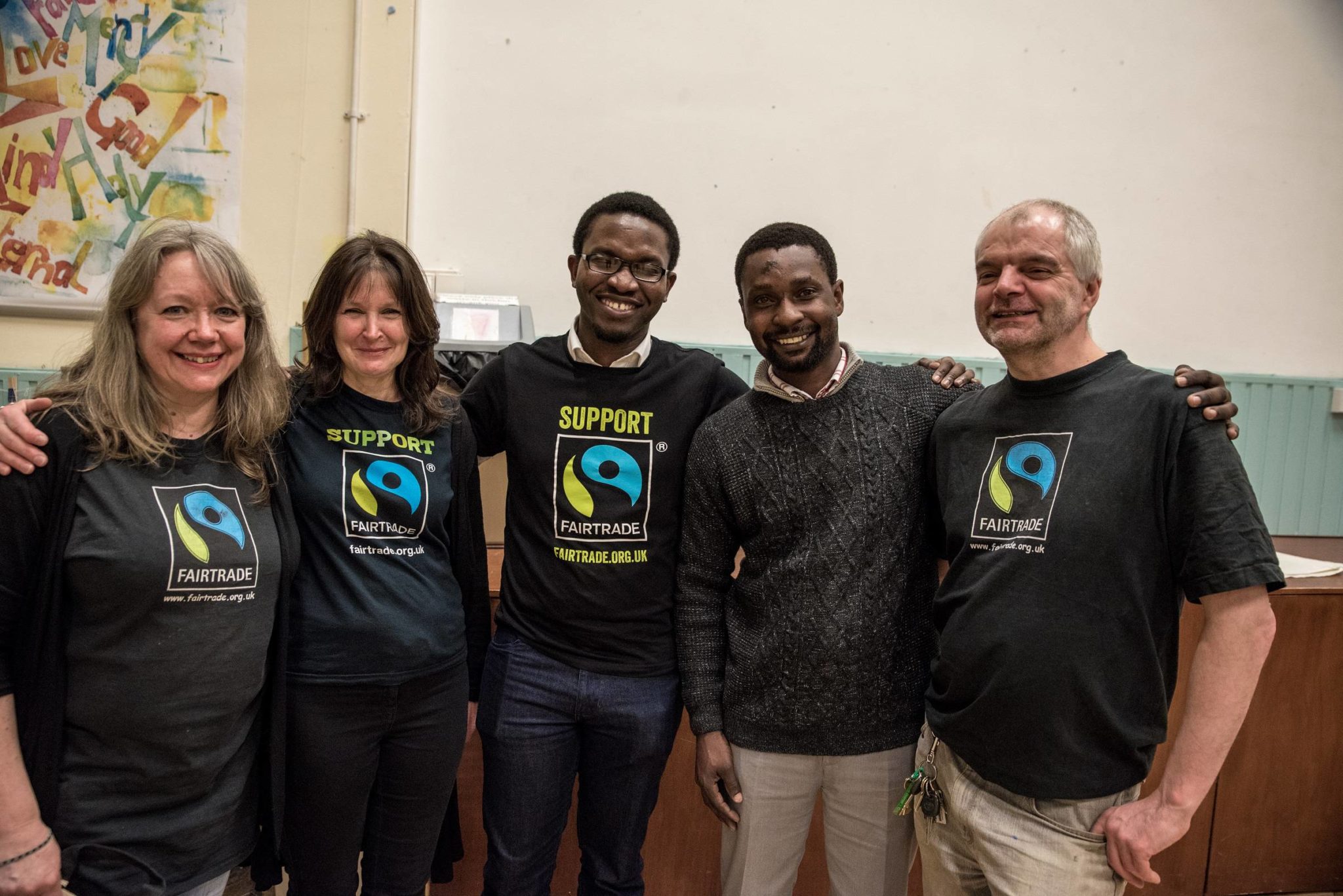The benefits of Fairtrade were brought home to local shoppers when a Malawian sugar cane producer visited the town.
Charles Chavi, 36, spoke to an audience at Tunbridge Wells Baptist Church about the transformative impact the scheme has had on his community in the southern Chikwawa district.
The extra price paid by consumers of Fairtrade brands enables Mr Chavi and his fellow small holder farmers to receive a £50 per tonne premium on their product. This money is then used to develop the basic infrastructure in the area – with schools, specialist drugs and ambulances purchased purely with the scheme’s funds.
As part of the ‘Fairtrade Fortnight’ his visit coincided with the creation of a community painting assembled by various citizens of the town, young and old, to be displayed in Royal Victoria Place until April 2.
Made up of a collection of small individually painted squares, the final piece is meant to resemble a famous image. Anyone who can figure out the original will have a chance to win a hamper donated by Marks and Spencer – one of the first major UK companies to sign up for the Fairtrade scheme.
The painting will be accompanied by an exhibition, celebrating Tunbridge Wells reaching the milestone of ten years as a Fairtrade Town. Manned by volunteers, it will showcase all the retailers and cafés that stock and serve Fairtrade products within the town.
Chair of Tunbridge Wells Fairtrade Town Group Mandy Flashman-Wells said: “When we shop we can easily get stuck buying the things we are used to and don’t think about the impact that can have on other people.”
The Fairtrade Foundation is a registered charity which works to help small-scale producers receive a fair price for their goods. They also campaign for big brands to sign up to the scheme. A portion of the extra money paid by consumers of Fairtrade goes toward investing in their community.
<Breakout> The Kasinthula Cane Growers Association (KCG)
Every quarter representatives from the KCG, a group of more than 700 small farms including Mr Chavi’s, come together to democratically decide how the use the funds.
Since becoming a Fairtrade supplier they have used the money to build a new primary school.
“Previously, children had to walk eight to ten kilometres to get to the nearest school. This prevented them from going or meant they were very late. Now 900 children can have a short walk to go to school,” said Mr Chavi
Other investments include purchasing specialist drugs, bicycle ambulances and linking more than 200 homes to electricity.
Last year 90 per cent of the sugar KCG sold went into the UK market. The most well-known product their yield goes into is Traidcraft’s Geobars.
But recent political developments have left the the growers less certain of the future.
“With Brexit, we don’t know what it will mean going forward. Searching for new markets is not easy,” he said.








